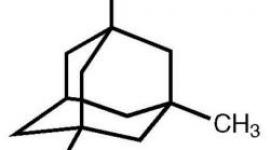Cholinesterase Inhibitors for Treatment of Alzheimer's

Explanation of cholinesterase inhibitors, how they work and effectiveness of cholinesterase inhibitors in treating Alzheimer's symptoms.
What Are Cholinesterase Inhibitors?
Pronounced: KOH-luh-NES-ter-ace
Cholinesterase inhibitors are a class of drugs approved by the U.S. Food and Drug Administration (FDA) to treat cognitive symptoms of mild to moderate Alzheimer's disease (symptoms affecting memory and other thought processes). Three cholinesterase inhibitors are commonly prescribed: donepezil (Aricept), approved in 1996; rivastigmine (Exelon), approved in 2000; and galantamine (approved in 2001 under the trade name Reminyl and renamed Razadyne in 2005). Tacrine (Cognex), the first cholinesterase inhibitor, was approved in 1993, but is rarely prescribed today because of associated side effects, including risk of liver damage.
How Do Cholinesterase Inhibitors Work?
Cholinesterase inhibitors are designed to increase levels of acetylcholine, a chemical messenger involved in memory, judgment and other thought processes. Acetylcholine is released by certain brain cells to carry messages to other cells. After a message reaches the receiving cell, various other chemicals, including one called acetylcholinesterase, break acetylcholine down so it can be recycled.
Alzheimer's disease damages or destroys cells that produce and use acetylcholine, reducing amounts available to carry messages. A cholinesterase inhibitor slows the breakdown of acetylcholine by blocking the activity of acetylcholinesterase. By maintaining acetylcholine levels, the drug may help compensate for the loss of functioning brain cells.
Cholinesterase inhibitors may also have other mechanisms that contribute to their effects. Galantamine appears to stimulate the release of acetylcholine and to strengthen the way certain receptors on message-receiving nerve cells respond to it. Rivastigmine may block the activity of an additional chemical involved in breaking down acetylcholine.
Cholinesterase inhibitors do not stop the underlying destruction of nerve cells. Their ability to improve symptoms eventually declines as brain cell damage progresses.
What Are the Benefits of Cholinesterase Inhibitors?
In clinical trials of all three cholinesterase inhibitors, individuals taking the medications performed better on tests of memory and thinking than those taking a placebo (an inactive substance). The degree of benefit was small, and more than half of the recipients showed no improvement at all. In terms of the overall effect, most experts believe cholinesterase inhibitors may delay or slow the worsening of symptoms in some individuals for about six months to a year, although some may benefit longer.
There is no evidence that combining these drugs would be any more helpful than taking any one of them, and it is likely combining them would result in a greater frequency of side effects (discussed below).
There is some evidence that individuals with moderate to severe Alzheimer's who are taking a cholinesterase inhibitor might benefit slightly more by also taking memantine (Namenda). Memantine is a drug with a different mechanism of action, approved by the FDA in 2003 for symptoms of moderate to severe Alzheimer's. In clinical trials, memantine showed greater benefit than a placebo, but its effect was modest.
What Are Common Side Effects of Cholinesterase Inhibitors?
Cholinesterase inhibitors are generally well tolerated. If side effects occur, they commonly include nausea, vomiting, loss of appetite, and increased frequency of bowel movements. It is strongly recommended that a physician who is comfortable and experienced in using these medications monitor patients who are taking them and that the recommended guidelines be strictly observed.
How Are Cholinesterase Inhibitors Prescribed?
Donepezil (Aricept) is a tablet and can be taken once a day. The starting dose is 5 mg a day, usually given at night. After four to six weeks, if the drug is well tolerated, the dose is often increased to the therapeutic goal of 10 mg a day.
Rivastigmine (Exelon) is available as a capsule or as a liquid. The dose is gradually increased to minimize side effects. Usually the medication is started at 1.5 mg once daily. After two weeks the dose is increased to 1.5 mg twice a day. The therapeutic goal is gradually to increase the dose every two weeks to reach a total of 6 to 12 mg a day, given in two doses each equal to half of the total. There is a greater frequency of side effects at the higher doses, but taking the drug with meals may be helpful in reducing the occurrence of side effects.
Galantamine (Razadyne) is supplied as tablets in strengths of 4, 8 and 12 mg. The recommended starting dose is 4 mg twice a day. If well tolerated after four weeks or more of treatment, the dose is increased to 8 mg twice a day. There was no statistical benefit in clinical trials for 12 mg twice a day over the dose of 8 mg twice a day, but if 8 mg twice a day is well tolerated after four weeks, the dose can be increased to 12 mg twice a day by the physician. Galantamine is also available in an "extended release" form as Razadyne ER that is designed to be taken once a day.
Sources:
Memory Loss and the Brain newsletter. Winter 2006.
Alzheimer's Association
APA Reference
Staff, H.
(2021, December 20). Cholinesterase Inhibitors for Treatment of Alzheimer's, HealthyPlace. Retrieved
on 2026, March 3 from https://www.healthyplace.com/alzheimers/medications/cholinesterase-inhibitors-for-treatment-of-alzheimers



